The Union government has no 'Buy India' policy, but has a 'Buy Air India' policy, notes Rathin Roy.
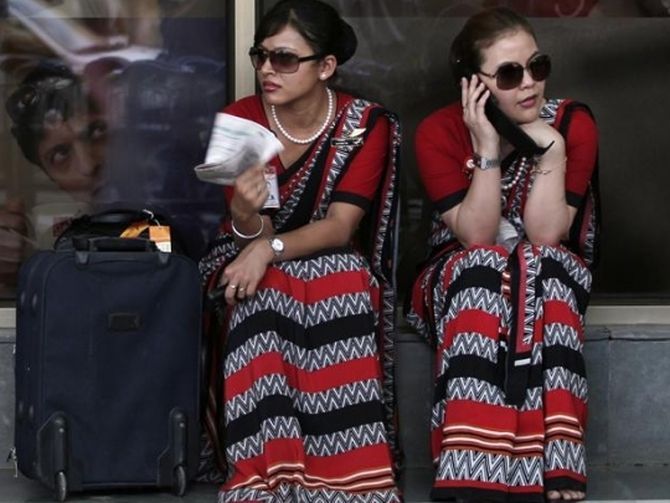
Air India will not be “privatised” is a cross-party policy that has stood the test of time, government stance and the preferences of individual personalities.
My takeaway from this is that the appetite for genuine public sector reforms in the country continues to be limited and the story of Air India tells us why.
It is embarrassing to list the problems with Air India. It is a drain on the public exchequer.
It is so inefficient that the exchequer saves money when operations are suspended. The equity infusions that have historically been sunk into the airline would have funded many schools, hospitals, defence projects, energy installations, national memorials - take your pick.
It has some of the highest paid employees in the public sector, with the lowest productivity. It provides no essential services that other Indian "flag carriers" cannot provide.
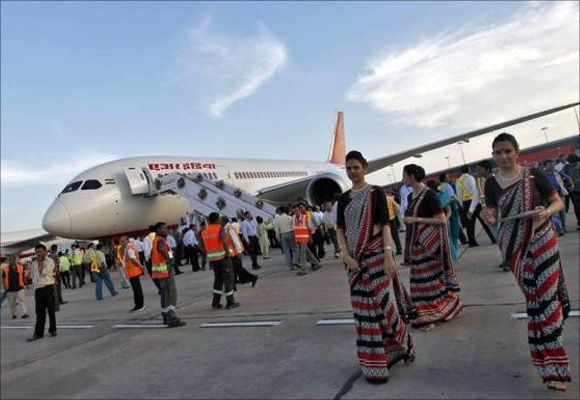
It has the highest employee-aircraft ratio in the Star Alliance. There is no significant political constituency that would be impacted by Air India's privatisation or, for that matter, closure and sale of assets.
The states do not care which airline provides them with value for money connectivity. Profitable Indian owned airlines could use Air India's bilaterals much better, should they be given an opportunity.
Other Indian airlines have exactly the same public service obligations with respect to connecting remote parts of India.
Especially after joining the Star alliance, Air India's inability to meet global standards is fully exposed, making it a terrible brand ambassador for India.
In response, successive governments have inflicted further pain on the exchequer and on national efficiency. The ridiculous rule that civil servants must fly Air India loses government both money and efficiency.
On work, civil servants must take permission to fly any other airline and the argument that the alternative is 40 per cent cheaper cuts no ice.
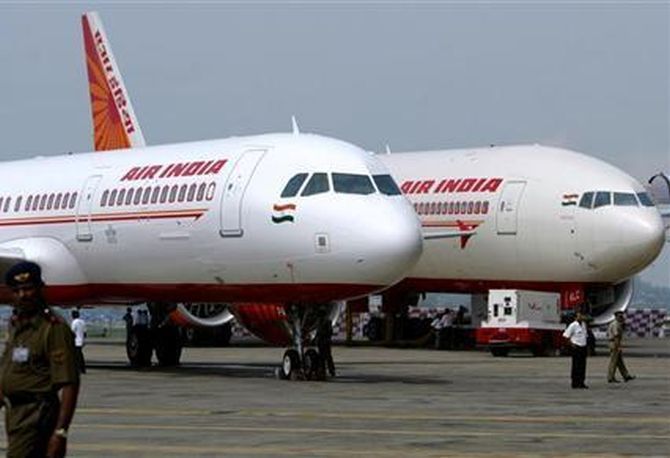
Photograph: Reuters
Flying Air India doubles the flying time from Port Blair to Delhi, compared with cheaper alternatives. It is also a discriminatory policy, that favours one Indian entity over its Indian competitors.
So is the cross-party policy stance on Air India due to muddled thinking, malfeasance, or both?
I think there are three factors at play. First, there is no agency, public or private, with a stake in Air India.
Public servants are captive customers and dislike their captivity. Employees seem afflicted with infinite bitterness over the merger with Indian Airlines.
The private sector is, too, tired with "cry wolf" attempts to deal with the problem to seriously engage with the subject. As a consequence, everybody thinks that they have a "turnaround solution" to the problem but no skin in the game.
Thus, civil servants and ministers appointed to either run or monitor Air India implement their own fads - merge the airline, sell bilaterals, buy new generation aircraft - and then vanish with no accountability for their actions.
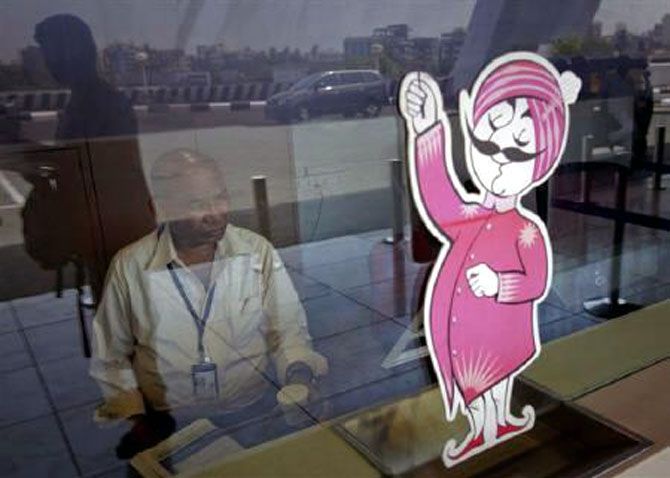
The civil aviation ministry spends its time firefighting for Air India at the expense of its broader public mandate.
The second factor is the attitude of public servants who treat the public sector like a jagir to be cossetted and favoured at the expense of everything else.
As a result, the Union government has no "Buy India" policy but has a "Buy Air India" policy.
This discrimination results in losses to everybody - government, the taxpayer, the private airline stakeholder - but these are discounted to minimise the perceived loss to the jagir even though the nation haemorrhages money.
The government, thus, behaves like a late Mughal dynast, with predictably similar results.
The third factor is entropy due to a combination of legacy, sleaze and misinformation.
Under Nehruvian socialism, the government operated under the belief that it owned the Indian flag.
Discriminating in favour of Air India on "flag carrier" grounds reflects this legacy.
But the state is a custodian, not the owner, of the flag. It is outrageously unpatriotic to insinuate that in times of national emergency, IndiGo and other Indian airlines would not provide the wherewithal to conduct civil aviation operations for which they, like Air India, would be compensated from the public exchequer.
Even a fraction of Air India's losses would buy the Air Force at least two VVIP aircraft that US President Barack Obama would envy. Part of the legacy is also sleaze.
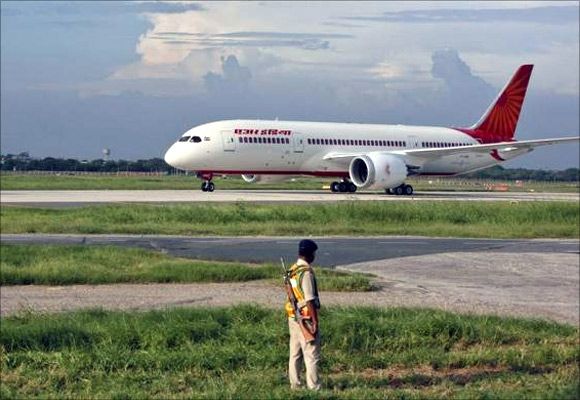
The ability of public servants to command public enterprises for private purposes, is greater than with private enterprises.
The public sector is today a major provider of freebies to them. Air India, particularly, has lots of freebies to offer. The combined result perpetuates entropy, and the rationale for maintaining the status quo.
The story of Air India is important in itself. India is a country with huge national security needs, making a Herculean effort to maintain a high growth trajectory.
It is inexcusable to continue to pour resources into - and discriminate in favour of - an airline that corrects for no market failure, serves no national purpose and is backed by no political constituency.
But the reasons underlying this irrational behaviour hold important lessons for overall public sector reform. I believe that India will continue to require a substantial public sector in the future.
However, public sector reforms will require the government to have a clear vision and ownership over the reform strategy and to act like a modern owner, not a feudal abuser, of public assets.
And it will require a concerted attack on entropy. This is the important takeaway from the depressing cross-party consensus on Air India's future.
The writer is director, National Institute of Public Finance and Policy.











